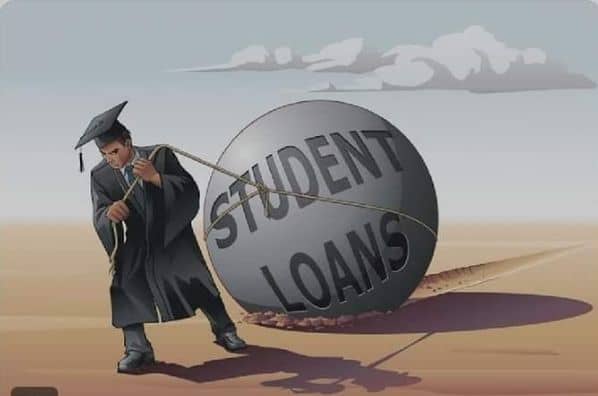Opinon Article
Crushing The Dream Of Education: Nigeria’s New Student Loan Policies And The Plight Of Educational Neglect — Ogundipe Daniel

Education in Nigeria is being left to rot on the vine, neglected and forgotten in the shadow of greater political concerns. As the next generation of students faces a system that has been allowed to wither, their future is in jeopardy. Without a strong educational foundation, the dreams of an entire generation may be lost.
For many students and their families, higher education has become a trap, a noose that strangles their dreams of a better life. Those with the means can afford private schools, leaving the public education system to decay and collapse. This divide is threatening to tear the country apart, creating a deep chasm of inequality that may never be bridged. The cost of education is not only financial, it is also social and moral, with lasting consequences for generations to come.
This is not a cry of despair, but a call for change. The youth of Nigeria are not looking for pity or charity, but a genuine commitment from their government to invest in their future. Rather than perpetuating a system of debt that keeps young people trapped in poverty, the government should establish a grant program that offers direct financial support to students. This would be a truly transformative policy, opening up opportunities for students from all backgrounds and creating a more equal and just society for all.

A grant program would give students the gift of freedom, a chance to focus on their studies without the stress of financial insecurity. It would foster creativity and innovation, allowing young people to pursue their passions and create new businesses and products that could benefit the entire nation. In short, it would be an investment not just in education, but in the future of Nigeria itself.
The benefits of a student grant program would not be limited to the economy. By providing equal access to higher education, regardless of family income or social background, the government would be promoting a more equitable and just society.
Recommended News:
- Bobrisky’s Real Offence Couldn’t Have Been Spraying Naira At Party — Omoyele Sowore
- Alleged $4.5bn Fraud: Court Grants Emefiele N50m Bail
- Final Solution Educational Consult Announces A Day UTME Seminar To Unlock Secrets Of Exam Success
It would create opportunities for students who might otherwise never have the chance to pursue their dreams, breaking down barriers and creating a more inclusive and cohesive nation. In this way, a grant program would be a truly revolutionary policy, with far-reaching consequences for Nigeria.
A comprehensive approach to improving education in Nigeria must go beyond a simple grant program. It must also include investments in the quality of teaching, a modernized curriculum, and better school facilities.
Only by addressing these underlying issues can we create a system that will truly nurture students and prepare them to succeed in the modern world. It’s not just about providing resources, but about creating a culture of learning and achievement that will benefit individuals and the nation as a whole.
Also, young people are the ones most impacted by the state of education in Nigeria, and their input is crucial to creating lasting, effective change. By including them in the policymaking process, we can ensure that the reforms are grounded in the realities of the classroom and designed with the needs of students in mind. Ultimately, it’s not just about creating a better education system, but about empowering young people to become active participants.

In short, the education system in Nigeria is in dire need of reform, and the status quo is failing our young people. By implementing a student grant program and empowering students to have a voice in the process, we can lay the foundation for a system that will foster innovation, drive economic growth, and equip future generations with the tools they need to succeed.
The hour for change has come; we cannot afford to wait any longer. It is up to all of us, working together, to create an education system that works for every student. With our collective efforts, we can transform the lives of the young people of Nigeria, and secure a brighter future for generations to come.












